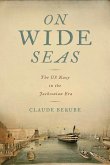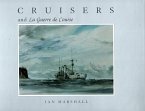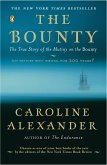Between 1933 and 1941, fifteen indigenous naval forces were raised in Britain's colonies, protectorates and mandate territories, and fought for the Empire during the Second World War. Though barely receiving a footnote within the existing historiography, if examined beyond naval strategy and more in relation to the cultural turn, they provide an important new lens for understanding imperial power and colonial relations at the twilight of the British Empire. Through a transnational and comparative analysis of 'official' and 'subaltern' sources in the United Kingdom, the Caribbean, East Africa, East and Southeast Asia, this book examines for the first time the political, social and cultural impact of colonial naval forces. It explores their emergence in a climate of 'imperial overstretch' and geopolitical tensions, as bulwarks for preserving British 'prestige' against rival imperialisms and colonial nationalisms; the importance of 'men on the spot', 'collaboration', 'naval theatre', 'invented traditions', and propaganda in mobilising colonial 'navalism'; the role of naval 'paternalism' and training within the 'civilising mission', and its social and economic 'development' of colonial 'character'; and how racial ideology and discourses of power fostered a 'seafaring race' theory, influencing naval recruitment, strategy and management, and affecting imperial sentiment, ethnic relations, colonial identities, customs and order. This book thus appeals to imperial, maritime and regional historians, and advances the cultural turn in those disciplines by broadening our understanding of navies as social and cultural institutions, where power was expressed as much in the ideas and relations they cultivated, as through the barrels of their guns.








